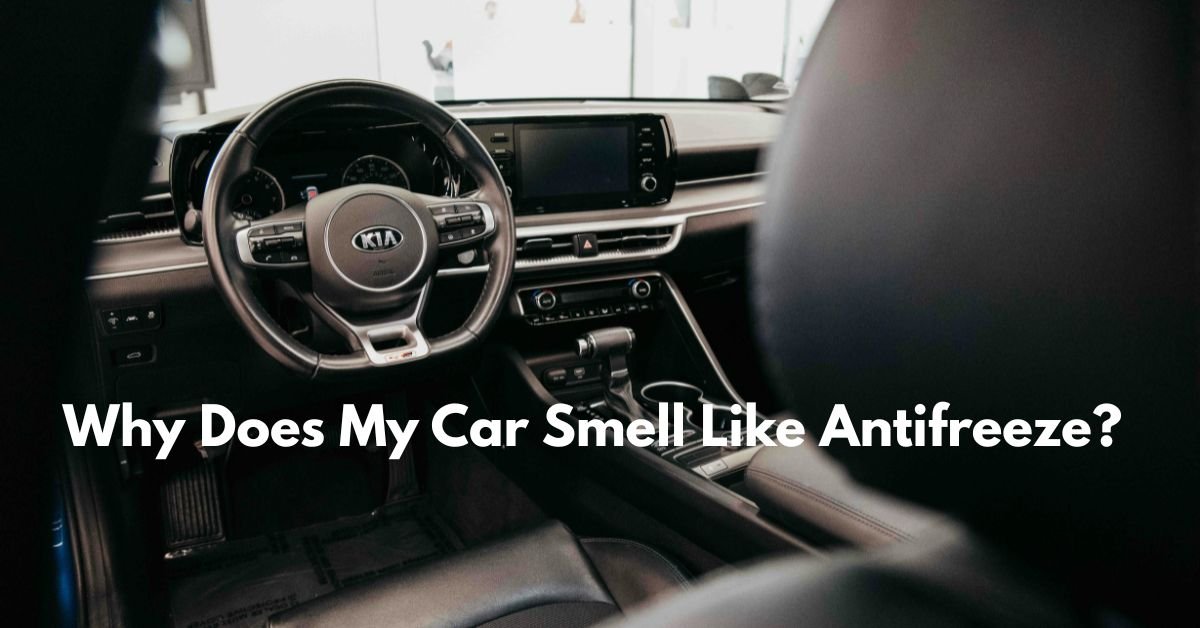If you’ve ever stepped into your car and caught a sweet, syrupy smell—especially when the engine is running or just after shutting it off—you’re probably smelling antifreeze. While it might not seem like a big deal at first, a car that smells like antifreeze can signal an underlying issue that needs attention. Let’s break down what this smell means, why it’s happening, and what you should do about it.
Why Does My Car Smell Like Antifreeze?
What Is Antifreeze?
Coolant, sometimes referred to as antifreeze, is an essential fluid for your car’s cooling system. It’s designed to regulate your engine’s temperature, preventing it from overheating in the summer and freezing in the winter. Most antifreeze is a mixture of ethylene glycol (or propylene glycol) and water, and it has a distinctive sweet smell.
That sweet smell is a red flag, not just an odd odor. Antifreeze is toxic, especially to pets and small children, and a leak could lead to bigger engine problems if not addressed.
Common Reasons Your Car Smells Like Antifreeze
Here are some of the most likely culprits behind that telltale scent:
1. Coolant Leak
The most common reason for an antifreeze smell is a coolant leak. This might be coming from a radiator hose, the radiator itself, the water pump, or even the heater core. Leaks can be external—dripping onto the ground—or internal, where coolant is being burned inside the engine or leaking into the cabin.
2. Heater Core Issues
If the antifreeze smell is strongest inside the cabin, especially when the heat is on, your heater core might be to blame. The heater core is like a mini radiator that transfers heat from the engine coolant into the air that warms your car. A failing heater core can leak coolant into your car’s interior, fog up the windows, or even cause damp carpets on the passenger side.
3. Radiator Cap Problems
A loose or damaged radiator cap can allow coolant to escape as vapor, especially when the engine gets hot. That vapor might leak out under the hood and cause that sweet antifreeze smell around the front of your vehicle.
Must Read: Why Does My Car Make A Noise When I Brake?

4. Blown Head Gasket
This is a more serious issue. If your head gasket is blown, it can allow coolant to enter the combustion chamber, where it burns along with fuel. This often creates a white exhaust smoke and a strong antifreeze smell outside the car. A blown head gasket can cause overheating and severe engine damage if not repaired promptly.
5. Leaking Reservoir
Sometimes the coolant overflow tank can develop a crack or its hose might be loose. This is a relatively minor issue compared to others but still needs attention, as it can lead to a loss of coolant over time.
What Should You Do?
It’s crucial to pay attention to your car’s antifreeze odor. Even a small coolant leak can turn into a major repair if it leads to overheating or engine damage. Here’s what you should do:
- Check for visible leaks under the car, especially after it’s been parked for a while.
- Inspect coolant levels—but only when the engine is completely cool. Never open a hot radiator cap.
- Look for damp carpets or foggy windows inside your car if the smell is strongest in the cabin.
- Monitor your temperature gauge. If the car is running hotter than normal, that’s a clear warning sign.
- Visit a mechanic for a proper inspection. Leak detection dye or pressure tests may be needed to find the exact source.
Final Thoughts
That sweet smell of antifreeze isn’t just a quirky quirk—it’s a signal that something in your cooling system might be going wrong. Catching it early could save you hundreds (or even thousands) in repair bills and help avoid a sudden breakdown. So next time your nose tells you something’s up with your ride, listen to it—your engine will thank you later.
